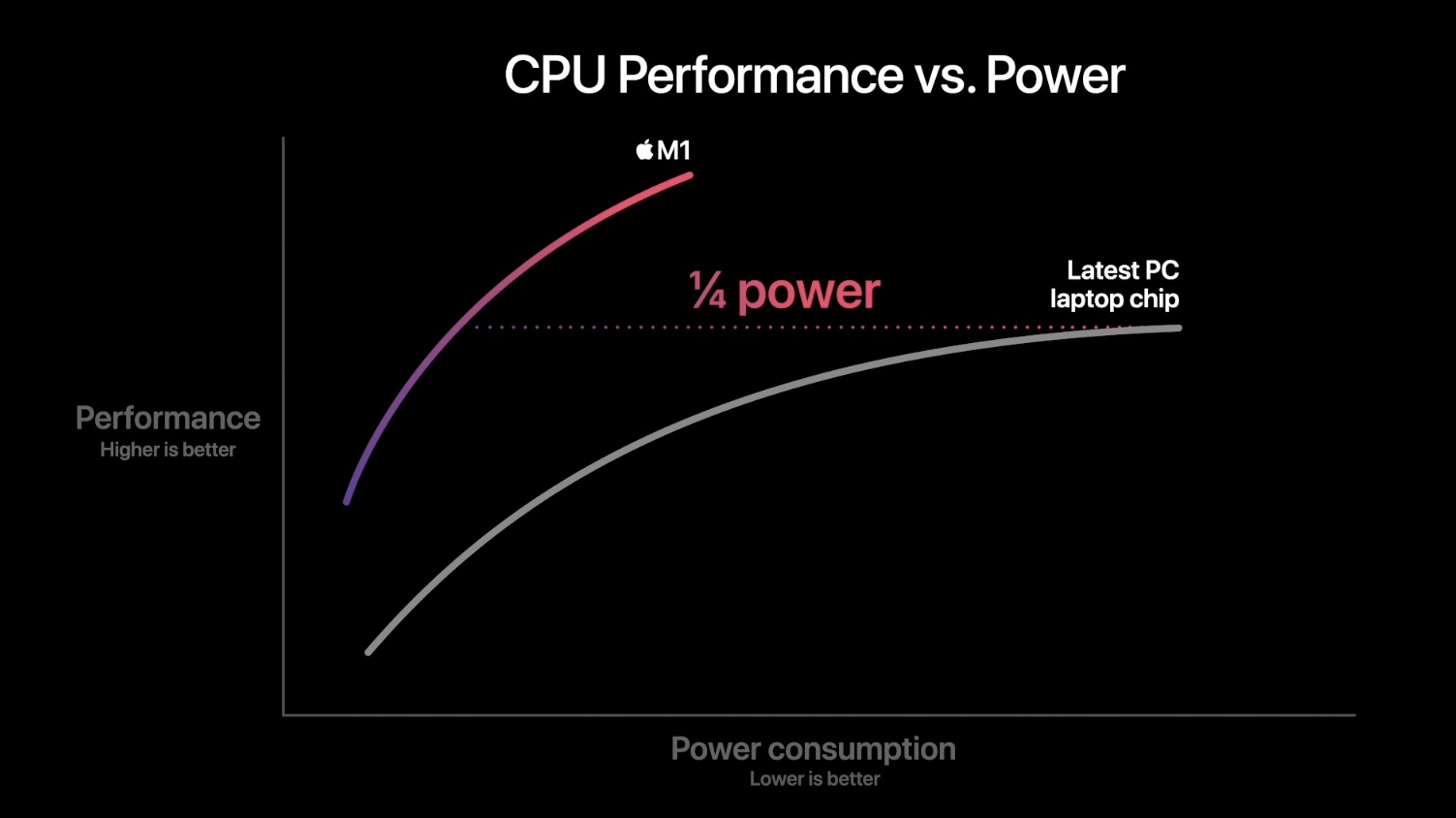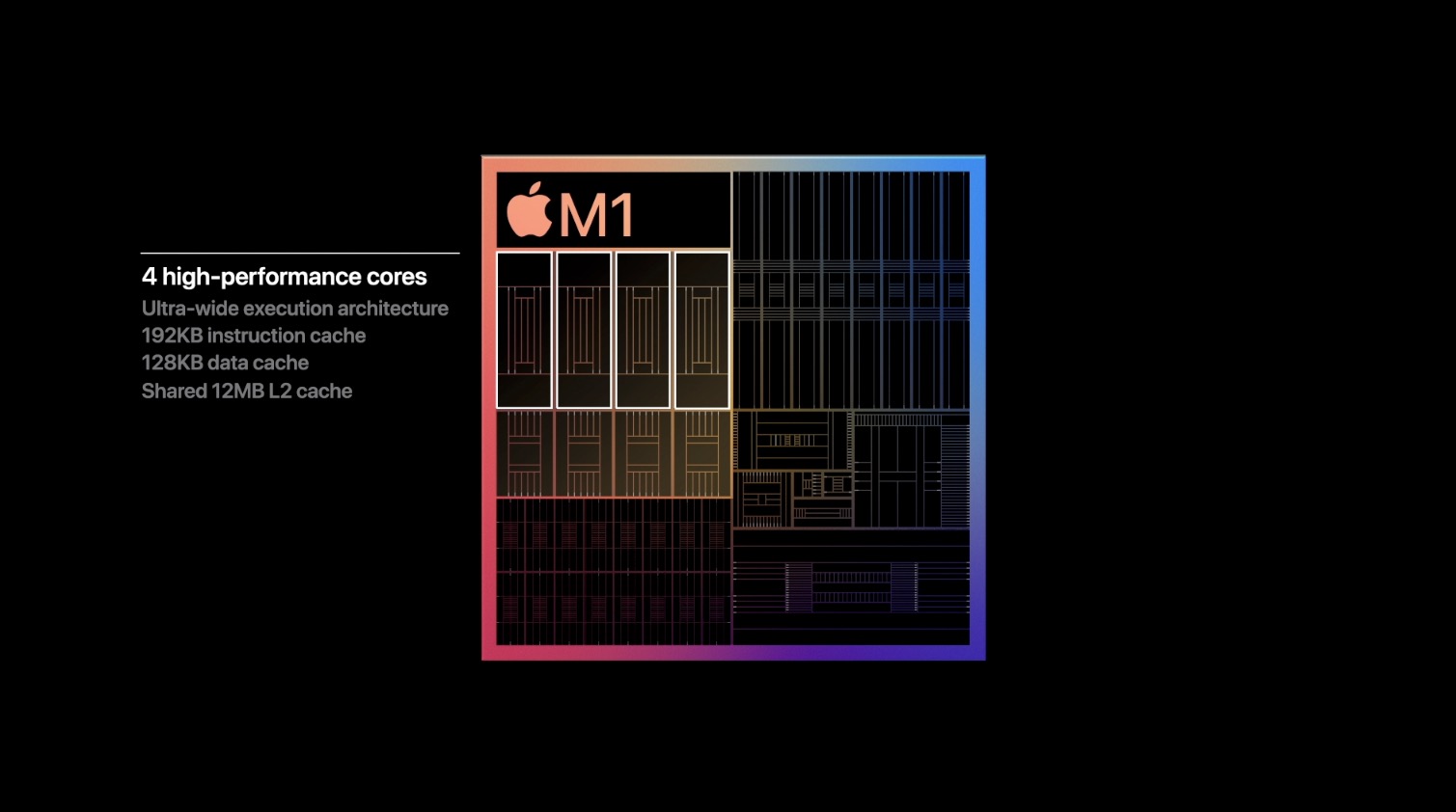Apple announces the M1, the first chip in its Apple Silicon family
As expected, Apple today announced its first Arm-based laptops, the MacBook Air, Mac mini and Macbook Pro, and, with that, it also announced its family of Arm-based Apple Silicon chips. When it first announced Apple Silicon, the company didn't provide a lot of details, but in today's presentation, we learned quite a bit more. The first chip in this family is the M1, based on a 5nm process.
We've been making Apple Silicon for more than a decade. It's at the heart of iPhone, iPad, and Apple Watch - and now we want to bring it to the Mac, so the Mac can take a huge leap forward with the incredible performance, custom technologies and industry-leading power efficiency of Apple Silicon," Apple said.
The M1 will feature four high-performance cores and four high-efficiency cores, following what has long become the standard for Arm chips.
Apple argues that the M1 is its highest-performance chip yet and that low-power high-efficiency cores deliver similar performance to its current Intel-based dual-core MacBook Air (though to be fair, that's not a performance machine by any stretch). The high-performance cores are significantly faster, of course.
Maybe more importantly, these chips also offer a better performance per watt than other systems.
On the GPU side, the M1 will feature up to eight cores with 128 execution units. It'll be able to handle up to 24,576 concurrent threads and peak performance of 2.6 teraflops. This, Apple argues, makes it the world's fasted integrated graphics experience on a laptop.
As expected, the chip will also feature Apple's neural engine for accelerating machine learning workloads.

Image Credits: Apple
The first set of developer units that Apple shipped out earlier this year were powered by the A12Z chip, a variant of the A12 that made its debut in the 2020 iPad Pro earlier this year. It doesn't look like Apple really modified that eight-core A12Z chip for its so-called Developer Transition Kit," but even without doing so, these developer kits also hit performance levels comparable with an entry-level MacBook Air.
And while Apple has obviously modified this chip design to suit its own purposes, it's worth noting that Arm itself has spent the last few years building an IP portfolio of server and desktop/laptop-ready chips. On the laptop side, it had a few wins, with Microsoft betting on Arm for some of its Surface devices, but overall, this remains a niche market. In the server space, though, Arm has clearly shown that it is able to offer its partners the right designs to build chips with the right power and performance trade-offs.

Image Credits: Apple
